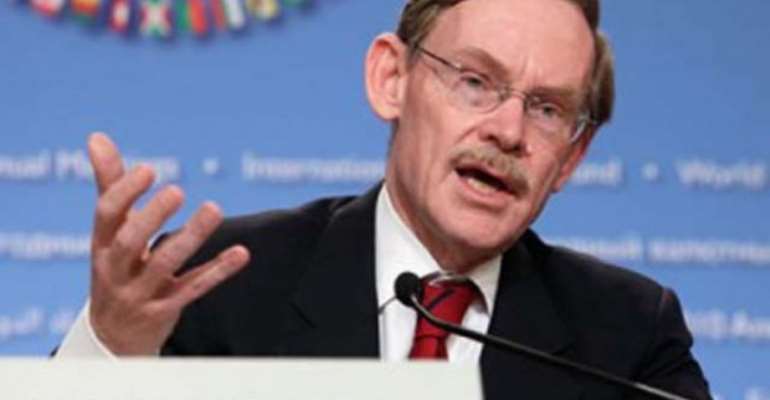World Bank forecasts drought in Nigeria

A report by the World Bank has said that Nigeria might suffer drought between now and 2015.
The bank also listed Ghana, Cameroun, Cote d'Ivoire, Ethiopia, Kenya, Senegal and Tanzania as other countries of Africa that might be affected by the drought.
In a report entitled: 'Africa's Pulse', which was released in Abuja on Monday, the World Bank also predicted what could happen to agriculture and food prices in the affected countries in the event of the anticipated drought.
It stated, 'In Africa, droughts are recurrent events, with adverse effects on local communities and the ecosystem. In a region where the majority of people depend on farming or raising animals, droughts inevitably have very negative consequences.
'The first wave would hit Cameroon, Cote d'Ivoire, Ethiopia, Ghana, Kenya, Nigeria, Senegal, Tanzania and Uganda over 2013-15, and the second wave of drought would hit all the remaining countries in the region over 2016-18.
'In line with previous studies, drought is modelled as a temporary shock to productivity in agriculture. Consistent with similar historical shocks, a level of productivity shock is chosen that would reduce agricultural output initially by around 10 per cent compared to the pre-shock level.'
It added, 'Subsequently, productivity recovers to its pre-shock level over the next two years. Following the drop in agricultural output, prices of agricultural produce and food increase much faster than the equivalent baseline numbers.
'For Ethiopia, Nigeria, or Zambia, the initial shock results in an increase in agricultural and food prices by an additional 15 per cent. Imports of food products increase significantly to replace domestic output. Households will bear the burden of higher food prices.
'Even though wages of unskilled workers rise, the increase in income is slower than that of food prices. Since food expenditures constitute a high share of household budgets, without government or international intervention, real consumption would decrease substantially.'
However, Director of Weather Forecasting, Nigeria Metrological Agency, Mr. Ifeanyi Nnodu, told our correspondent that the agency had not received any such signal, adding that it did not forecast weather for a three-year period.
'I have not seen the report. However, our weather forecasting is for one year period. We have released that of 2013 and we are working on that of 2014,' he said.
The report stated that following the global financial crisis and recurring climatic volatility on the continent, a growing number of African countries were setting up social safety nets to protect the health and livelihoods of the poor and vulnerable people during periods of adversity.
It noted that the safety nets could protect families from the worst effects of crises and also contribute to growth as well by allowing people to raise their incomes.
According to the report, buoyed by rising private investment in the region and remittances now worth $33bn a year supporting household incomes, Gross Domestic Product growth in Africa will continue to rise and pick up to 5.3 per cent in 2014 and 5.5 per cent in 2015.
Strong government investments and higher production in the mineral resources, agriculture and service sectors are supporting the bulk of the economic growth, it said.
The report noted that as Africa's growth rates continued to surge with the region becoming increasingly a magnet for investment and tourism, while poverty and inequality remained unacceptably high and the pace of reduction unacceptably slow.
